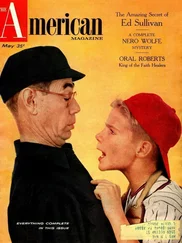Nevil Shute Norway - Pastoral
Здесь есть возможность читать онлайн «Nevil Shute Norway - Pastoral» — ознакомительный отрывок электронной книги совершенно бесплатно, а после прочтения отрывка купить полную версию. В некоторых случаях можно слушать аудио, скачать через торрент в формате fb2 и присутствует краткое содержание. Жанр: unrecognised, на английском языке. Описание произведения, (предисловие) а так же отзывы посетителей доступны на портале библиотеки ЛибКат.
- Название:Pastoral
- Автор:
- Жанр:
- Год:неизвестен
- ISBN:нет данных
- Рейтинг книги:3 / 5. Голосов: 1
-
Избранное:Добавить в избранное
- Отзывы:
-
Ваша оценка:
- 60
- 1
- 2
- 3
- 4
- 5
Pastoral: краткое содержание, описание и аннотация
Предлагаем к чтению аннотацию, описание, краткое содержание или предисловие (зависит от того, что написал сам автор книги «Pastoral»). Если вы не нашли необходимую информацию о книге — напишите в комментариях, мы постараемся отыскать её.
Pastoral — читать онлайн ознакомительный отрывок
Ниже представлен текст книги, разбитый по страницам. Система сохранения места последней прочитанной страницы, позволяет с удобством читать онлайн бесплатно книгу «Pastoral», без необходимости каждый раз заново искать на чём Вы остановились. Поставьте закладку, и сможете в любой момент перейти на страницу, на которой закончили чтение.
Интервал:
Закладка:
Chapter One
Think no more, lad; laugh, be jolly:
Why should men make haste to die?
Empty heads and tongues a-talking
Make the rough road easy walking,
And the feather pate of folly
Bears the falling sky.
A. E. HOUSMAN
Peter Marshall stirred in the broad light of day, and woke up slowly. The pale sun of February streamed into his narrow room, a gold streak crossing the foot of his bed and lighting on the deal wash-stand. He saw the sunlight through half-opened eyes, then closed them again to ease the dazzle. He could not close his ears. He heard, passing away above his head, the high scream of an ungeared engine in fine pitch, and automatically his mind said: ‘Harvard.’ He listened, tense even in his torpor, till the note dropped as the unseen pilot changed to coarse and throttled back a little; then he relaxed and pressed his head more deeply in the pillow.
It would not have woken him if it had been a Wellington. Wimpies were part and parcel of his life, the very texture of his work. He was awake now, though he lay with his eyes closed. There was a Wimpey running up one engine, somewhere away out in the middle distance of the aerodrome. It would be one of the ones up for forty-hour inspection, or else the one that hadn’t taken off last night. The engine, he decided, sounded lousy.
The noise died down to a tick over, and he heard the birds. There were elm trees opposite the mess, retained for camouflage; these trees were full of rooks. He heard them cawing and disputing. He heard the twittering of sparrows. He heard a cow lowing from the meadow. He heard an AC2 pass beneath his window whistling: ‘Daisy, Daisy . . .’ He opened his eyes again, and there was the pale gold sun streaming across the wash-stand. He turned his head to look at the window and saw a pale blue, cloudless sky, and felt the cold air fresh upon his face. He remembered the Met. report and the belt of high pressure that extended out into the Atlantic.
‘God,’ he muttered drowsily, ‘it’s going to be a bloody fine day.’
He raised his head to look at the wristwatch laid upon the chair beside him; it was seven minutes past ten. He closed his eyes again, calculating. It had been nearly three when he had got to bed, he thought. They had landed back just before two. Taxi-ing to dispersal and handing over to the ground crew took a bit of time. Ten minutes in the truck to Wing Headquarters and twenty minutes over the report. Then the truck again to the mess, and a quarter of an hour, sleepy and silent, over cocoa and buns. It must have been three before he was in bed. That meant he had only had seven hours’ sleep; enough for an old man, maybe, but not for a growing boy. He need not get up yet.
He stretched and turned over in his bed, savouring the comfort of it, closing his eyes and striving to regain the warm oblivion from which the Harvard had dragged him. He could not sleep again. He lay for twenty minutes growing gradually wakeful, till he heard the batwoman banging about in the room next to his. He heard the rattle of china as she emptied the basin into her slop-pail.
The partitions were only beaverboard. He shouted: ‘Beatrice! Beatrice—come in here a minute.’
He heard the pail go down with a rattle of the handle, and she put her head around the door. ‘Did you call, Mr Marshall?’
‘I did,’ he said. He turned in bed to look at her. ‘Have you been down for your elevenses?’
‘Not yet. We aren’t supposed to go before half past ten.’
‘It’s half past ten now. Will you bring me up a cup of tea when you come back?’
She giggled. ‘Oh, Mr Marshall! You know I’m not supposed to do that, not at this time of the morning. Mrs Stevens she wouldn’t half let me know about it if she saw me.’
‘She won’t see you.’
‘When are you going to get up, Mr Marshall? I got this room to do before dinner.’
‘I’ll get up when I’ve had my tea.’
She said: ‘I never promised,’ and shut the door. Lying there in bed and asking for tea, she thought, and with the sun streaming in, and all. Even if he had been out late. She had heard the aircraft coming in over her hutment in the camp, in the middle of the night. Them blue pyjamas he had on were ever so nice, and he didn’t half look nice in them. She went downstairs to get his tea.
Marshall sat up in bed. The room, small as it was, held all his personal belongings. He got out of bed and crossed to the corner by the door, and picked up a long green rod-bag. From a top drawer of the chest of drawers he took a little leather bag that held a reel. Carrying these with him, he returned to bed.
He had been introduced to fishing about six or seven months before by Sergeant Phillips, his rear-gunner, who came from York. In peace-time Phillips worked a complicated machine that put the chocolate on to chocolate biscuits, but his heart was in fishing. Every Sunday he would go out and sit on the bank of some slow-flowing stream, frequently the Derwent. He fished for nothing but roach. With his long green-heart roach-pole, his bag of ground bait, and his gentles he would sit all day, watchful, alert, and patient. He had developed into a very good rear-gunner in the Wimpey.
He had taught Marshall to fish for roach. He had succeeded so far as he had fired his captain with enthusiasm for fishing, but his pupil had soon deserted roach for pike. Spinning for pike was more in keeping with the quick energy of the pilot; moreover, you could eat stuffed pike. It was true that Phillips ate the roach, but it was generally conceded that roach were an acquired taste. If you happened to like eating cotton-wool stuffed with mud you liked eating roach.
Gunnar was a roach fisherman, and used to go and sit with Phillips by the slow stream two miles away, the River Fittel, that ran southwards to the Thames through the pleasant farms of Oxfordshire. Gunnar Franck was a Dane from Copenhagen, a sergeant pilot, Marshall’s second pilot and navigator. In 1940 he had been a medical student in his home town; he had reached England from Norway in a fishing-boat in 1941 and had spent six weeks in an internment camp while his credentials were examined. He approved of that, and frequently told the story in the sergeants’ mess. ‘Ver’ careful, ver’ good,’ he would say. ‘Soon as I got on shore at Aberdeen, officer asks me questions. I not speak English ver’ well those days, and pretty soon he think I was a Nazi. I spent six weeks in prison.’ From gaol he had been sent to Ottawa, from Ottawa to Arizona to a flying school. Ten months later he had flown a Hudson back from Montreal to Scotland as a second pilot. He had been a second pilot ever since, though recently he had been re-mustered as a navigator.
Gunnar was a big young man with a red face and curly black hair, good-tempered, methodical, and rather slow. So far as Marshall knew, he had never made a mistake in navigation, and no emergency had ever made him hurry. He never passed a course or distance verbally, but wrote it down and gave it to his captain. He had explained this once to Marshall. ‘No mistakes,’ he had said, beaming good-humouredly. ‘No mistakes this way. Perhaps one day you think I say something when I mean differently, so I think it better that I write it down.’ He always crossed his sevens in the continental style.
These two, Phillips and Gunnar Franck, formed the backbone of the crew; the others came and went in training or dilution of the air crews, but the rear-gunner and the navigator stayed with Marshall. He had reflected once or twice that all of them were fishermen, and had once suggested that a heraldic roach, rampant in or upon a field of gules, should decorate the front fuselage of the current Wimpey. The Wing Commander had taken a poor view of that and Marshall, lying in bed in the pale sunlight, was not altogether sorry that the scheme had come to nothing. A roach was a lousy fish to put upon a Wellington. A pike, a pike with great snapping jaws and very fierce would be altogether different.
Читать дальшеИнтервал:
Закладка:
Похожие книги на «Pastoral»
Представляем Вашему вниманию похожие книги на «Pastoral» списком для выбора. Мы отобрали схожую по названию и смыслу литературу в надежде предоставить читателям больше вариантов отыскать новые, интересные, ещё непрочитанные произведения.
Обсуждение, отзывы о книге «Pastoral» и просто собственные мнения читателей. Оставьте ваши комментарии, напишите, что Вы думаете о произведении, его смысле или главных героях. Укажите что конкретно понравилось, а что нет, и почему Вы так считаете.












